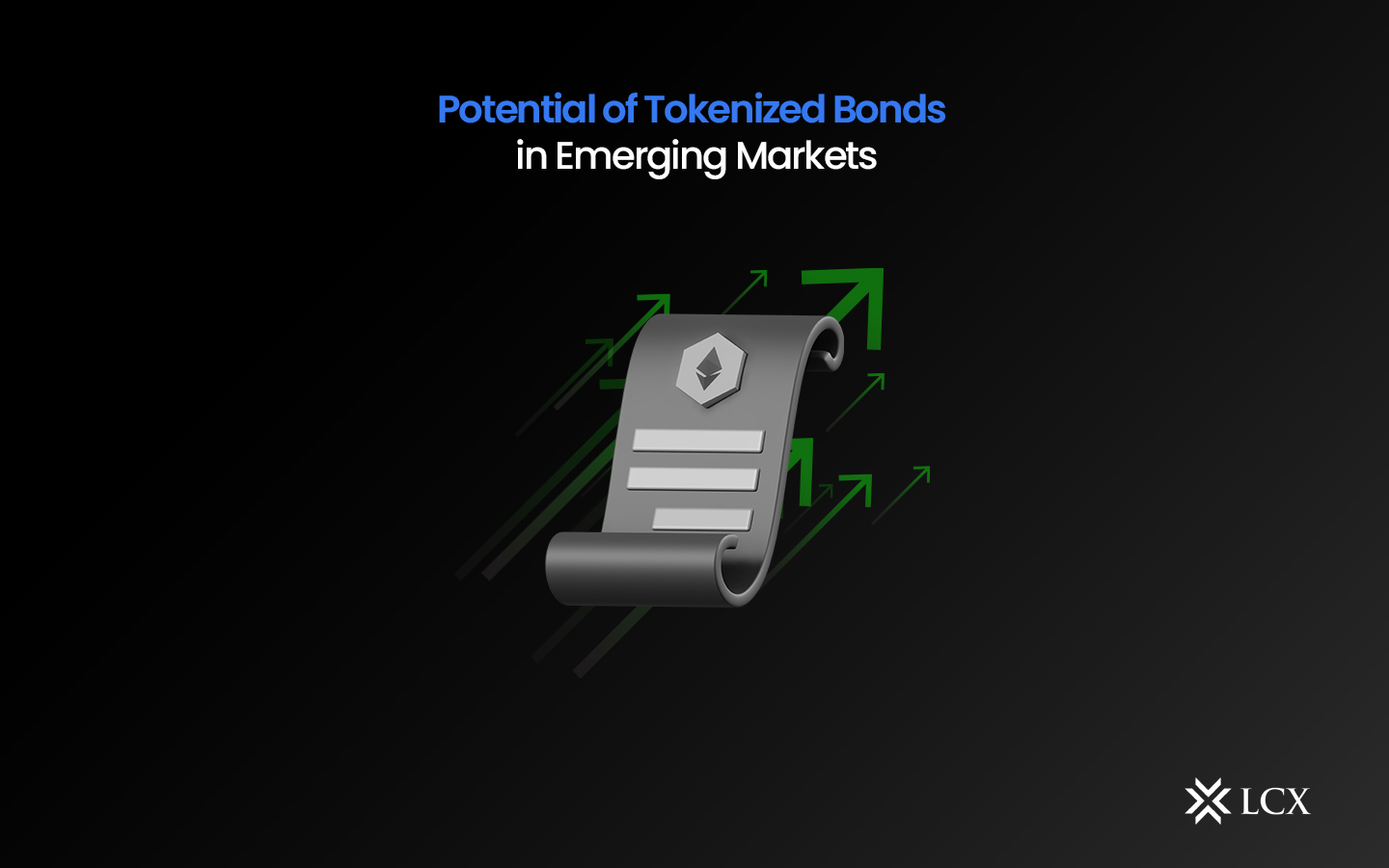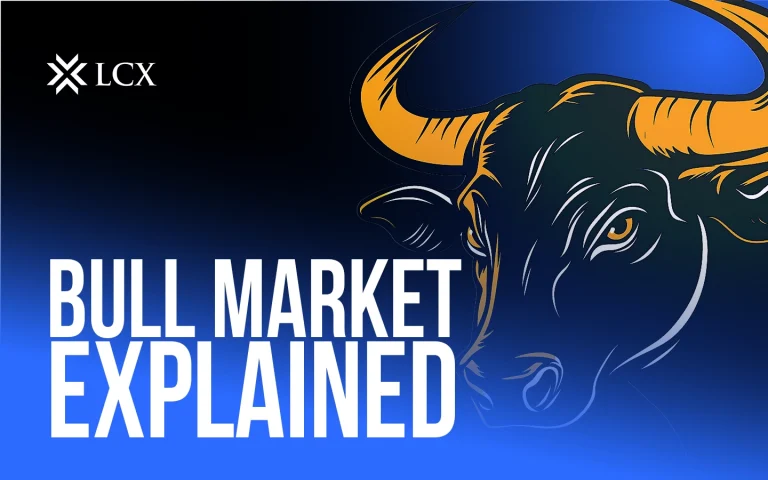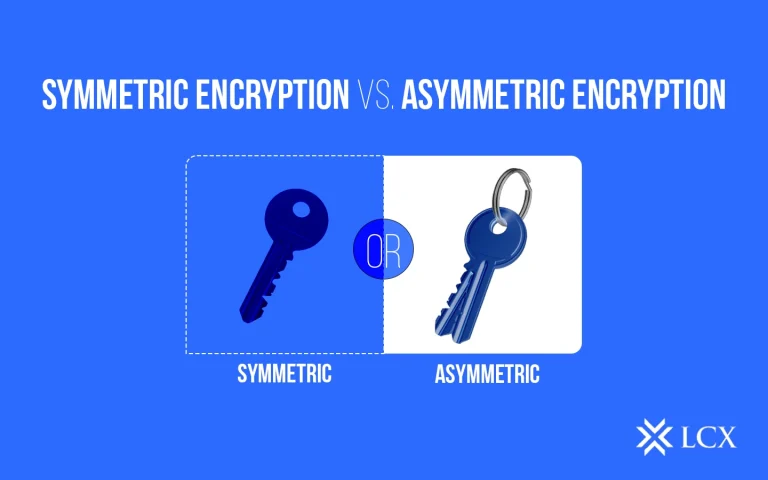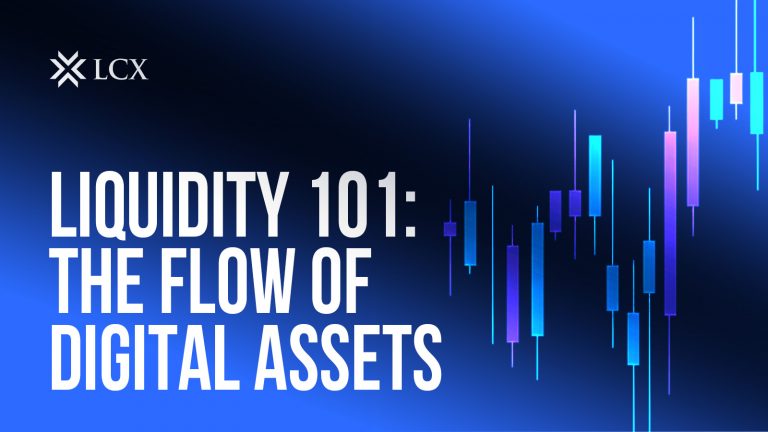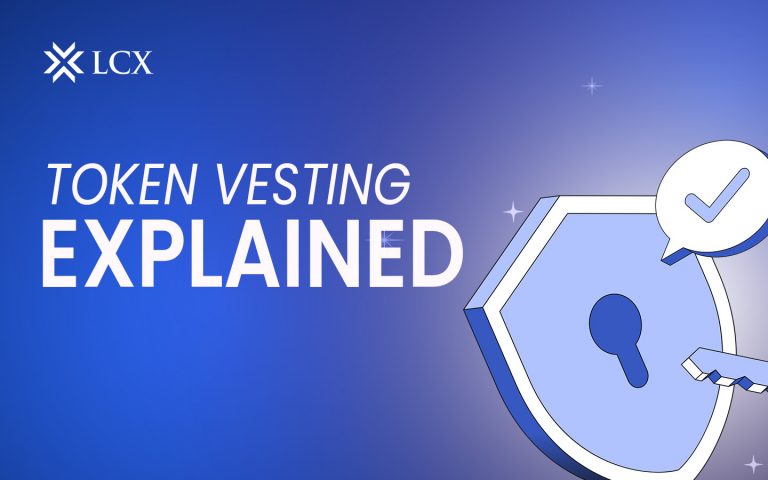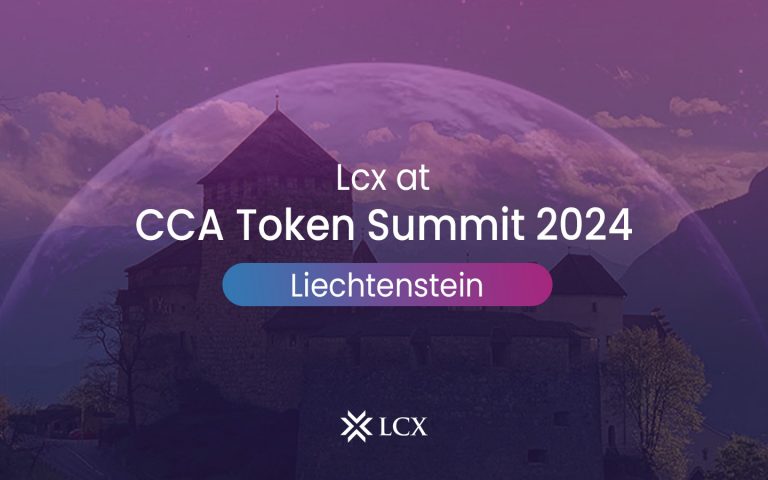Tokenized bonds have emerged as a promising solution to unlock the potential of emerging markets, enabling the issuance and trading of bonds in a secure, transparent, and efficient manner. Accessing traditional financial instruments, such as bonds, can be difficult for these markets due to high costs and complex intermediaries. However, tokenized bonds can provide issuers and investors with a more accessible and flexible option. The EURt7 bond issued by LCX is a prime example of how tokenized bonds can be used to democratize investment opportunities by providing investors with a compliant and secure means of earning high returns. We can anticipate further innovation in tokenized bonds and greater adoption in emerging markets as blockchain technology continues to develop, thereby transforming the financial industry as a whole.
How Can Tokenized Bonds Unlock the Potential of Emerging Markets?
An “emerging market” economy is the economy of a developing nation that engages with global markets increasingly as it develops. Emerging market economies are countries with some, but not all, of the characteristics of developed market economies. Developed markets are characterized by robust economic development, high per capita income, liquid equity and debt markets, foreign investor accessibility, and stable regulation.
Emerging market economies often become more intertwined with the global economy as they expand. This means that the country can experience more liquidity on its local debt and equity markets, as well as a rise in its trade volume and foreign direct investment. It can establish contemporary monetary and regulatory organizations. Emerging market economies are undergoing a crucial shift from a low-income, less-developed, and often pre-industrial economy to a modern, industrial economy with a higher quality of life.
Emerging markets are economies that are undergoing rapid expansion and development and are marked by high levels of volatility and risk. These markets frequently lack access to standard financial instruments, such as bonds as a means of high-profit investment, which is critical for capital formation and growth financing. Tokenized bonds provide a new method for enterprises and governments in these markets to access financing, as well as a more efficient and transparent investment vehicle for investors with the potential for high returns.
Tokenized bonds are essentially digital tokens representing bond ownership. These tokens are issued using a blockchain network, which enables transparent and efficient bond issuance and settlement management. Tokenized bonds provide various advantages over traditional bonds due to the use of blockchain technology.
First, they offer a more efficient way to issue and settle bonds. Traditional bond issuances can be time-consuming and costly, involving multiple intermediaries and lengthy settlement times. Tokenized bonds can be issued and settled in a matter of minutes, with minimal intermediaries involved. This can significantly reduce costs and improve liquidity for investors.
Second, tokenized bonds offer greater transparency and accountability. The blockchain platform provides a secure and immutable record of all transactions, which can be easily audited and verified. This reduces the risk of fraud and corruption, which are often concerns in emerging markets.
Additionally, tokenized bonds also offer benefits to issuers. By using blockchain technology, issuers can access a wider pool of investors from around the world, potentially reducing their cost of capital. They can also issue bonds with greater flexibility, tailoring the bond terms to suit their specific needs.
How EURt7 is Revolutionizing the Financial Industry
Tokenized bonds have a huge potential to revolutionize the economy of the emerging market as a means of high-profit investment instrument, but they also have equal relevance in EEA economic markets. As the tokenized bond market expands and evolves in the EEA, this technology may be implemented in novel ways, and more issuers and investors may enter the market. However, the legislative uncertainties surrounding tokenized bonds posed issues for issuers and investors, notably in terms of investor protection and compliance. Hence, LCX has developed the EURt7 bond, reiterating its commitment to regulatory compliance and total transparency. LCX is opening the door for new financial opportunities with its legally compliant tokenized bond.
EURt7 will give investors a unique investment opportunity that combines the advantages of blockchain technology with traditional bonds. The EURt7 tokenized bond has been endorsed by the regulatory authority and has been passported across to 29 European nations. With LCX’s approved bond offering, investors can earn 7% on their Euros by including LCX EURt7 to their portfolios. In order to invest, they must:
- Have a verified account on LCX.com
- Invest at least 1,000 EUR, with a maximum of 10,000 users
- Invest in a limited offering of €10 million until sold out
- Be a resident of the European Economic Area (EEA)
Learn more at www.LCX.com/EURt7/
How to Invest in EURt7 Bonds at LCX Exchange
For users to invest in LCX’s EURt7 bonds, the following are a few simple steps to follow:
- Sign up or Login at https://accounts.LCX.com/
- Click “Earn” in the navigation bar
- See EURt7 line and click “Invest” button
- Add amount you want to invest
- Make sure you have the EUR for your investment and LCX token to pay the fees in your LCX Main Wallet.
- Click the checkbox to accept the terms and conditions
- Now click, “Invest in EURt7”
Final Thoughts
The potential for tokenized bonds in emerging markets is significant. By leveraging the benefits of blockchain technology, tokenized bonds can provide a more efficient, transparent, and inclusive way for companies and governments to access capital, while also offering investors a new way to invest in these markets. As the regulatory and infrastructure challenges are overcome, we can expect to see greater adoption of tokenized bonds in emerging markets in the years to come.
